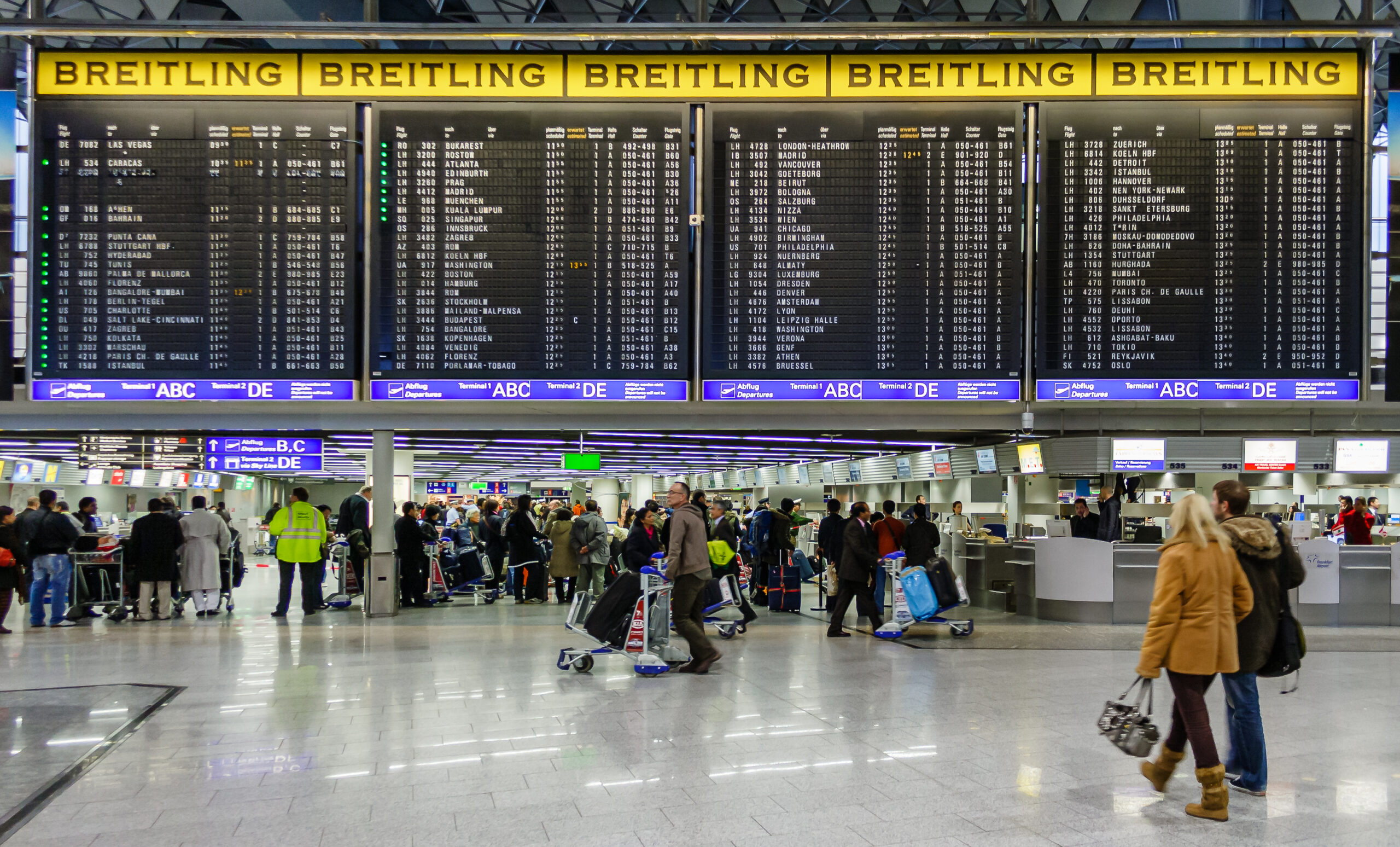
A cyberattack targeting check-in and boarding systems disrupted air traffic and caused delays at several of Europe’s major airports on Saturday. The electronic systems at Brussels, Berlin’s Brandenburg, and London’s Heathrow airports were affected, forcing airport staff to revert to manual check-in and boarding procedures. While the overall impact on travelers appeared to be contained, experts say the incident exposed significant vulnerabilities in shared digital systems.
Brussels Airport confirmed in a statement that a cyberattack occurred on Friday night against the service provider for its check-in and boarding systems, affecting multiple European airports. The airport initially reported a “large impact” on flight schedules, with nine flights canceled and 15 delayed by more than an hour by mid-morning. The issue was traced to a “cyber-related disruption” in the MUSE (Multi-User System Environment) software from Collins Aerospace, a company whose systems help passengers check themselves in and dispatch their luggage.
A Sophisticated and Widespread Attack
The attack was described by travel analyst Paul Charles as “a very clever cyberattack” because it affected numerous airports and airlines at the same time by compromising a core system. Charles called it “deeply worrying” that a company of Collins Aerospace’s stature would be affected.
The fallout appeared to be contained as the day wore on. A spokesperson for Berlin’s Brandenburg airport said that while no flights were canceled for this reason, delays were still possible. Heathrow, Europe’s busiest airport, reported “minimal” disruption directly related to the cyberattack, though a passenger on her way to a holiday in Thailand said she spent three hours at baggage check-in because staff had to write baggage tags by hand. Collins Aerospace, which is a subsidiary of RTX Corp., said it was “actively working to resolve the issue.”
The Vulnerability of the Aviation Industry
Experts say the attack points to a fundamental vulnerability that hackers are increasingly trying to exploit. Charlotte Wilson, a head of enterprise at cybersecurity firm Check Point, said the aviation industry has become an “increasingly attractive target” for cybercriminals due to its heavy reliance on shared digital systems. “These attacks often strike through the supply chain, exploiting third-party platforms that are used by multiple airlines and airports at once,” she said.
Experts are still investigating the source of the attack, but they offered initial thoughts on the motive. James Davenport, a professor of information technology, said based on the information available, the attack looked “almost more like vandalism than extortion.” The European Union’s cybersecurity agency, ENISA, later confirmed that the attack was a ransomware incident.
Author’s Opinion
This cyberattack, while seemingly limited in its immediate impact on travelers, exposes a fundamental weakness in modern global systems. The aviation industry’s reliance on a few third-party providers for critical functions means that a single point of failure can create a massive ripple effect across continents. This incident serves as a powerful reminder that in a world of complex, interconnected digital networks, cybersecurity must be a shared responsibility, and that a single vulnerability can be exploited for far-reaching disruption that goes beyond simple financial motives. The shift to manual workarounds demonstrates the fragile nature of a system that is built for seamless digital efficiency, but is not always resilient to a targeted attack on its core.
Featured image credit: Wikimedia Commons
For more stories like it, click the +Follow button at the top of this page to follow us.
